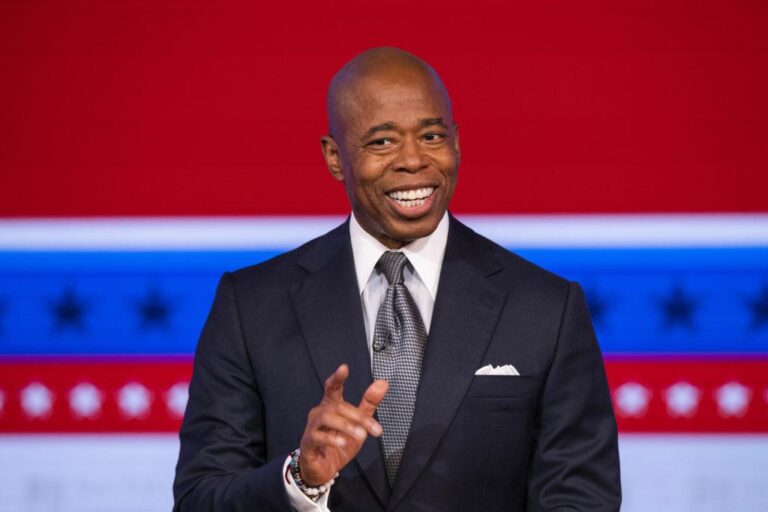Rethinking Urban Leadership in the Trump Era: A Democratic Mayor’s Pragmatic Vision
Challenging Conventional Urban Responses to Trump-Era Policies
In the shifting terrain of American politics, city leaders have frequently found themselves at the forefront of responding to the divisive policies and rhetoric associated with former President Donald Trump. However, one Democratic mayor is breaking from the typical narrative that urban administrations must adopt a combative stance against the Trump legacy. She contends that many cities are mishandling their approach by prioritizing partisan opposition over practical governance, which risks alienating residents and hindering critical municipal services such as affordable housing, infrastructure development, and public safety.
Instead, this mayor promotes a more balanced and results-oriented strategy that includes:
- Proactive collaboration with federal agencies to access funding and resources despite political disagreements.
- Customized policy development that directly addresses the unique needs of local communities rather than blanket resistance to federal directives.
- Emphasis on tangible improvements like reducing homelessness rates and enhancing public transportation systems.
By adopting this pragmatic framework, cities can better withstand federal challenges while fostering innovation and resilience, positioning themselves as constructive partners rather than adversaries in governance.
How Federal Policies Shape City Governance: A Closer Look
Federal decisions, particularly those from the Trump administration, have significantly influenced municipal autonomy, often forcing city officials to balance compliance with resistance. Some urban leaders argue that the widespread tendency to oppose federal policies outright can sometimes be more symbolic than effective, detracting from the ability to deliver essential services. They advocate for a strategic recalibration that leverages cooperation with state and federal bodies to maximize benefits for local populations.
This approach involves:
- Selective adherence to federal mandates that align with city values and practical goals.
- Innovative policy-making that respects federal frameworks while addressing grassroots priorities.
- Building alliances with other municipalities to strengthen collective bargaining power on shared issues.
Municipalities embracing this model report enhanced outcomes in areas such as public safety, housing, and infrastructure, demonstrating the potential of governance that transcends partisan divides.
| Area of Impact | Conventional Tactic | Collaborative Approach |
|---|---|---|
| Public Safety | Confronting federal law enforcement agencies | Establishing joint task forces and sharing intelligence |
| Housing | Resisting federal housing restrictions | Co-creating inclusive zoning and development policies |
| Infrastructure | Rejecting federal funds due to policy disagreements | Negotiating funding agreements with accountability standards |
Balancing Federal Pressures with Local Priorities: Effective City Strategies
Facing increasing federal demands, many cities are at a pivotal juncture, needing to reconcile national mandates with their constituents’ distinct priorities. A growing number of urban administrations are adopting collaborative governance models that actively involve community stakeholders, local nonprofits, and residents in crafting policies that resonate with the city’s social and economic realities. This inclusive approach ensures that municipal initiatives remain relevant and credible, even amid politically charged federal directives.
Additionally, cities are employing a diverse set of tools to assert local autonomy while maintaining constructive federal relationships, including:
- Targeted legal actions: Filing lawsuits to challenge federal overreach when necessary.
- Transparency efforts: Hosting open forums and providing real-time updates to engage and inform the public.
- Strategic alliances: Forming coalitions with other cities to pool resources and amplify influence.
- Flexible policy designs: Creating adaptable frameworks that can evolve with changing federal priorities and community feedback.
| Strategy | Primary Advantage | Illustrative Example |
|---|---|---|
| Legal Challenges | Safeguards municipal authority | Sanctuary city legal defenses |
| Transparency Initiatives | Enhances public confidence | Live-streamed city council meetings |
| Strategic Partnerships | Amplifies collective bargaining power | Regional metropolitan coalitions |
| Adaptive Policy Frameworks | Maintains policy effectiveness over time | Dynamic public safety protocols |
Guidance for Urban Leaders Confronting Trump-Era Challenges
City officials are encouraged to adopt a forward-thinking stance that emphasizes engagement and collaboration rather than reactionary opposition when dealing with the residual effects of Trump administration policies. This involves fostering inclusive conversations with a broad spectrum of community members instead of relying solely on public denunciations or symbolic protests. By prioritizing cooperative problem-solving, mayors can leverage local innovation to overcome federal gridlock, particularly in critical sectors such as immigration enforcement, housing affordability, and public health.
Building robust coalitions with regional partners and advocacy organizations is essential to magnify urban voices and secure resources that reflect the realities of city life. Furthermore, investing in data-driven approaches enables municipalities to tailor interventions that directly address residents’ needs.
| Issue | Suggested Municipal Action | Desired Outcome |
|---|---|---|
| Immigration Enforcement | Expand sanctuary policies and provide community legal support | Safeguard immigrant rights and alleviate community fears |
| Healthcare Access | Increase funding for local clinics and outreach programs | Broaden access to essential health services |
| Environmental Regulation Rollbacks | Implement stringent city-level climate initiatives | Advance sustainability despite federal deregulation |
By concentrating on actionable, evidence-based policies rather than partisan rhetoric, urban leaders can empower their communities and demonstrate that effective governance hinges on local dedication rather than federal priorities.
Looking Ahead: Embracing Pragmatism in Urban Governance
As cities continue to navigate the complex political environment shaped by the Trump era, this Democratic mayor’s pragmatic approach offers a refreshing alternative to the dominant strategies of opposition. Her vision highlights the necessity of prioritizing effective administration and community unity over partisan conflict. While it remains to be seen how widely her ideas will influence municipal policies nationwide, they contribute meaningfully to the ongoing conversation about how urban centers can best address the challenges of a deeply divided political climate.




